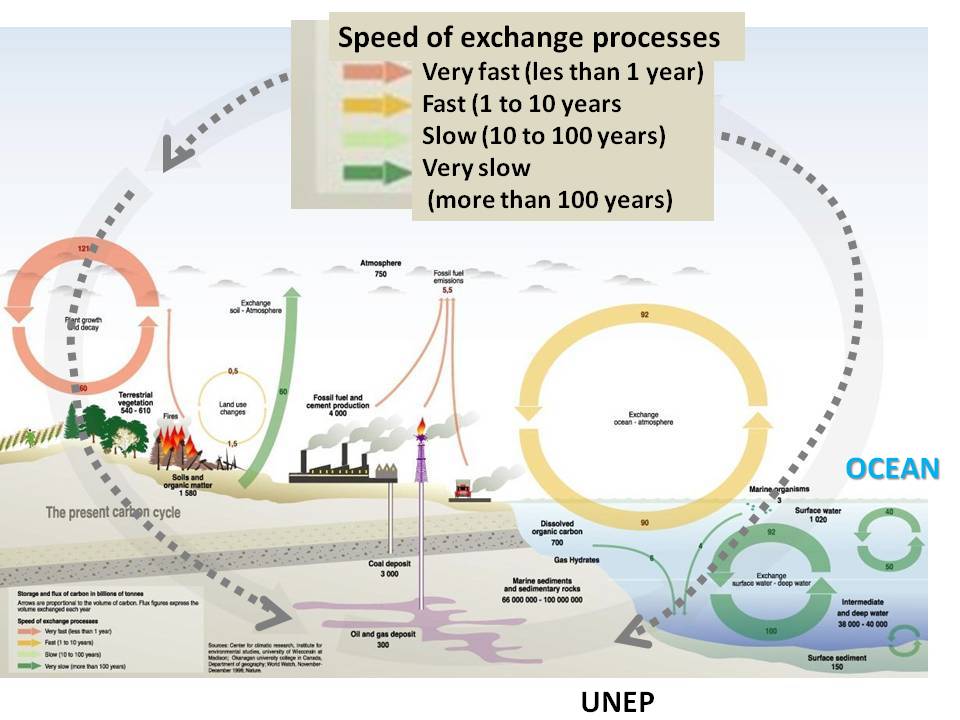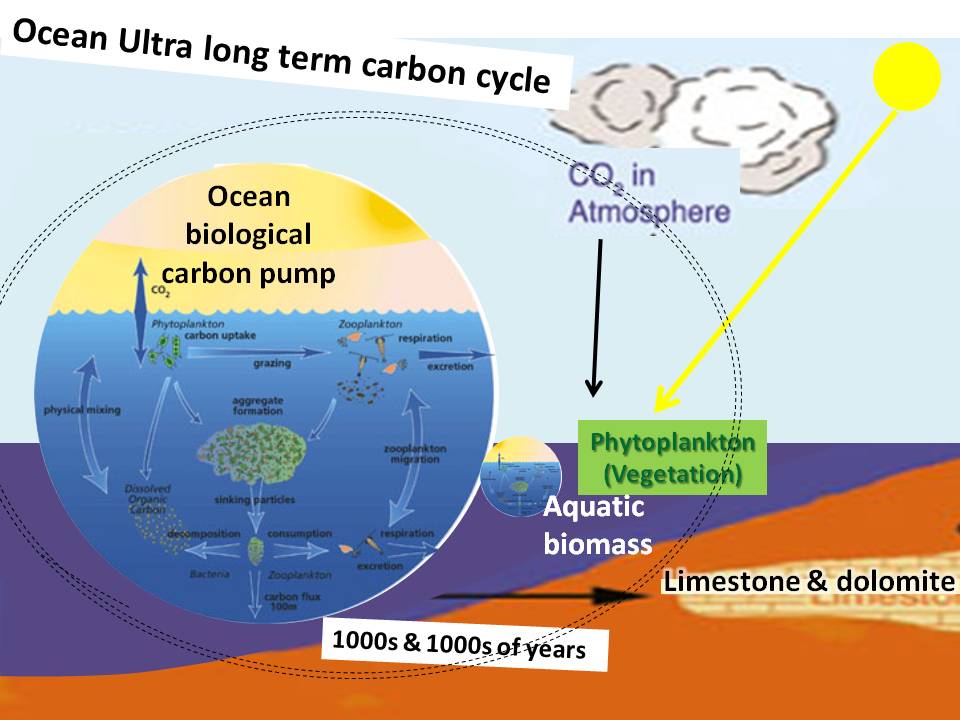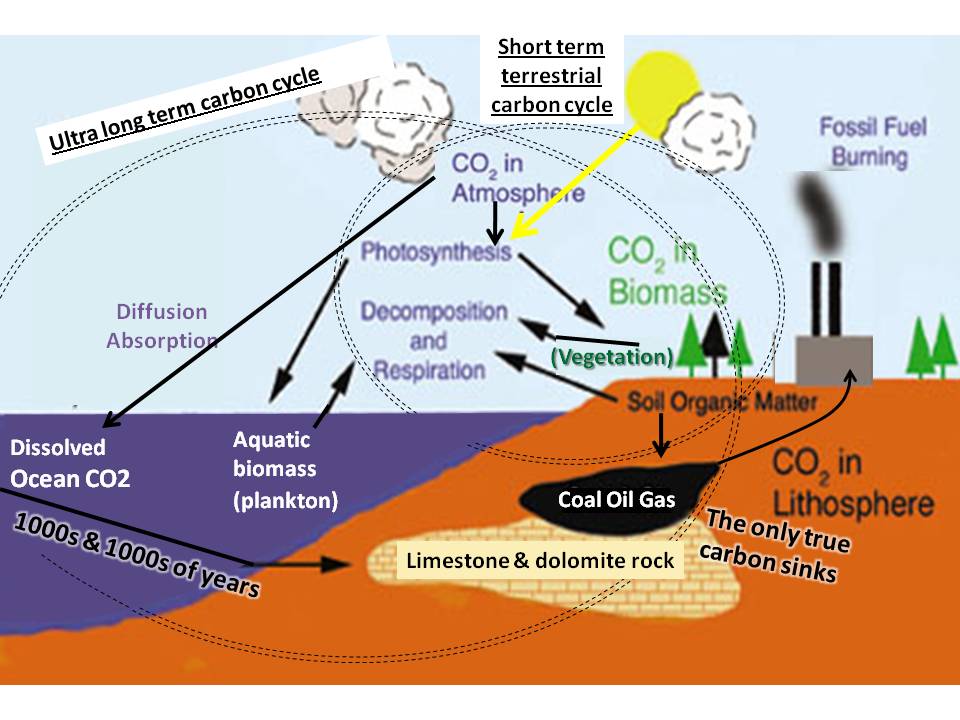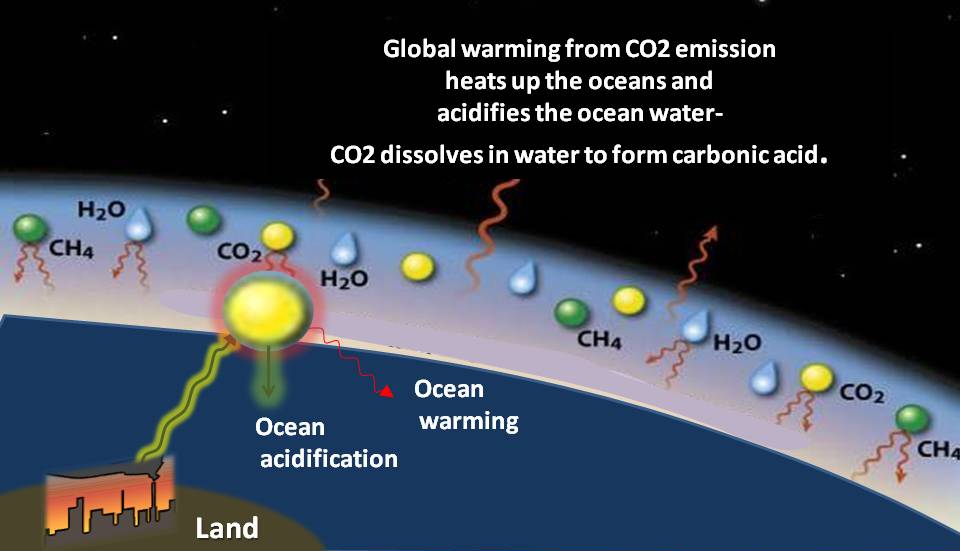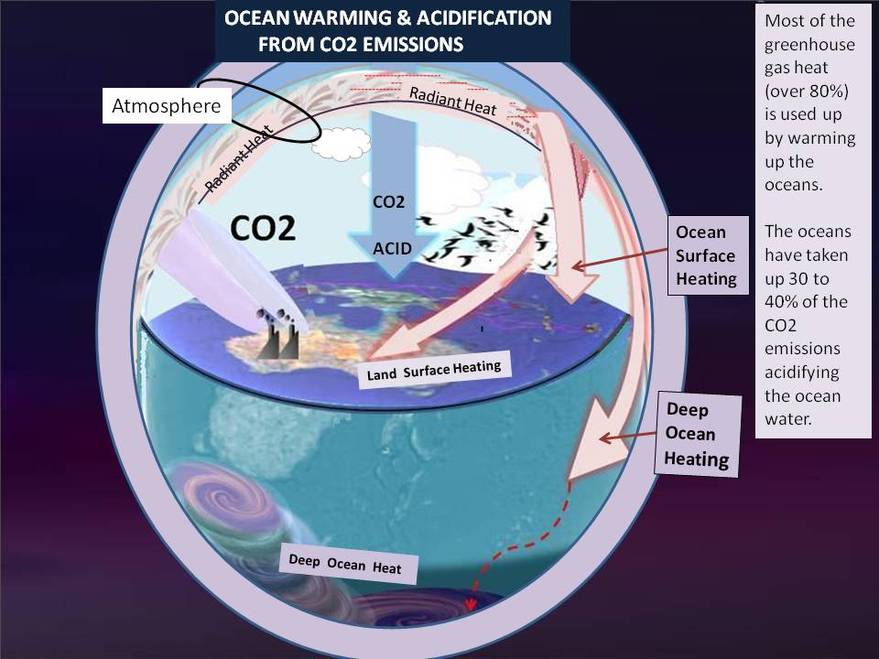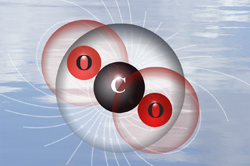There are two ultra long-term / super slow carbon cycles by which the planet takes carbon out of atmospheric carbon dioxide.
One is land based and the other is ocean based.
They are both ultra slow processes happening over thousands to hundreds of thousands of years.
They both operate by dead organisms literally sinking and being compressed into liquid or sold matter.
Constant warming and acidification of the oceans by constant emission of carbon dioxide is already having a profound effect on ocean chemistry and marine life.
If the pouring out of carbon emissions continues the effect on the oceans will be catastrophic to life both in the oceans and on land.
The oceans are the largest, most important intrinsic part of the global climate system.
The World Ocean is in fact the ultimate control of of the planet's climate.
There are three damaging effect that CO2 emissions has on the oceans
o Ocean heating
o cean acidification
o Ocean deoxygenation
Ocean heating
Carbon dioxide emissions affects the oceans in big ways.
First it causes ocean heating (as do the other GHGs). CO2 emissions casue the most
Over 90% of all GHG emissions added heat goes to the oceans
Ocean heating is record high and accelerating
The ocean carbon sink
The oceans take up 25-30% of industrial age CO2 emissions- referred to by the science as the ocean carbon sink.
Ocean carbon store
It is actually more of carbon store than sink. It has long been long that the ocean sink efficiency will decline resulting in more CO2 staying in the atmosphere and further increasing the rayte of atmospheric CO2 increase. Meanwhile the absorption of CO2 by the oceans is causing increasing ocean acidification.
The ocean carbon sink starts with minute green plants- the ocean phytoplankton.
phytoplankton take up about half of the total to carbon taken up by the planet's green plants.
The carbon captured by the phytoplankton is incorporated into shell bearing marine organisms that sinking to the ocean bottom are incorporated into ocean sediments. Over thousands to millions years this becomes solid carbon as limestone or dolomite. This process of actually sinking carbon on apermant basis is by the long or slow carbon cycle.
only zero carbon only zero carbon only zero carbon only zero carbon only zero carbon only zero carbon only zero only zero
The ultra long term slow ocean carbon cycle that sinks carbon from the atmosphere and is the ultimate control of the climate.
Oceans
It took a long time for the oceans to be seriously included in the climate science, and the oceans are still not adequately included. Ocean are not considered in mitigation calculations.
The ocean take up over 90% of the added GHG heat and 30% of the CO2 emissions. This being regarded as a benefit
because other-wise global warming would be way hotter.
However for the health of the oceans and for future generations these are harms not helps, as over time the. heat and CO2 ocean absorbing become less efficient, with higher heating and faster atmospheric CO2 increase.
CO2 molecule
